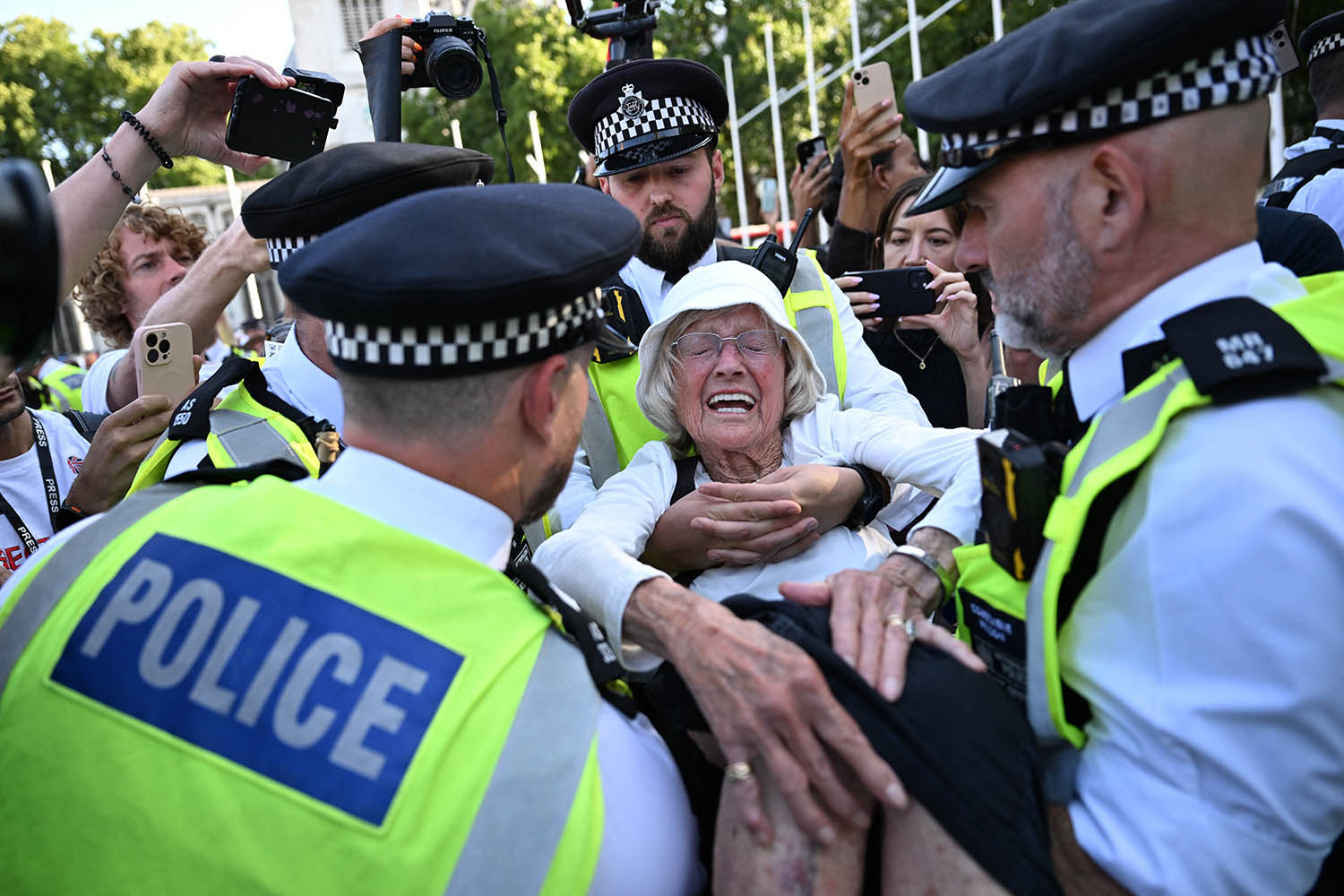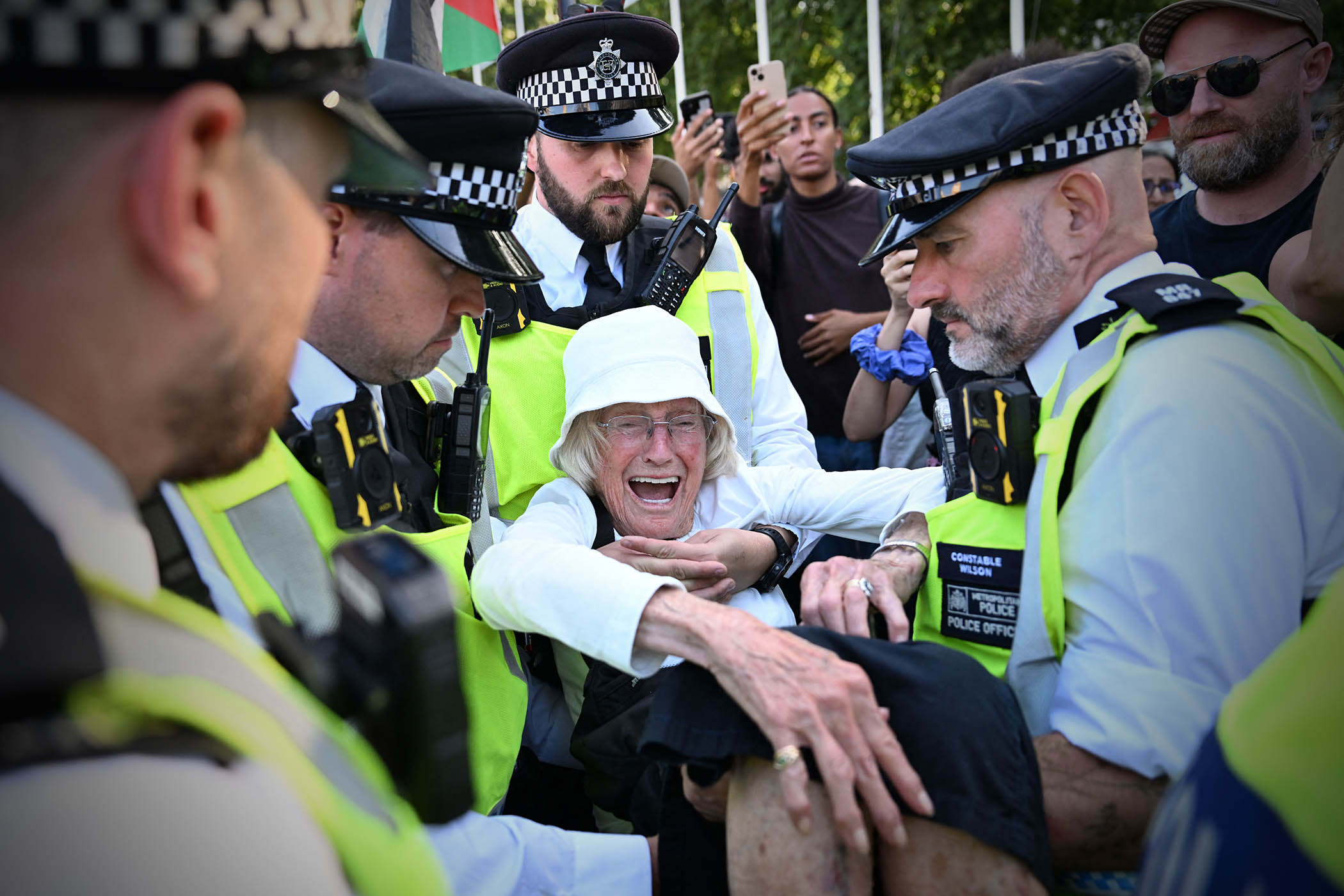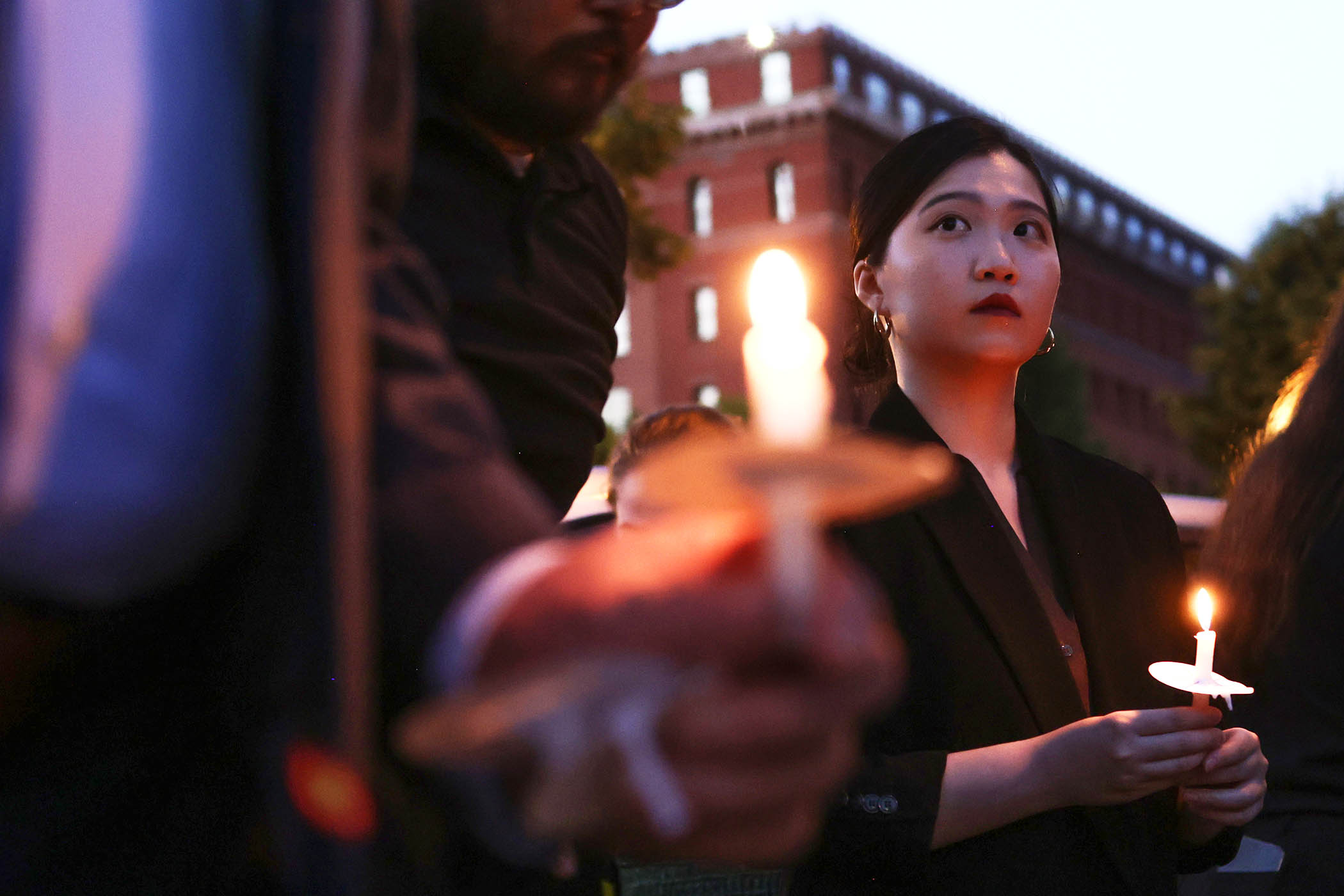Most of the 532 people arrested in London on Saturday at a protest in support of Palestine Action, recently outlawed as a terrorist group, are out on bail.
So what? It was still one of the biggest mass arrests in modern British history and could pave the way for more acts of civil disobedience. The ban
•
raises questions about the right to protest peacefully in the UK;
•
has drawn condemnation from human rights groups; and
•
threatens to consume police time and clog up already congested courts.
Silver-haired. Nearly all the arrests were for silently displaying signs that read: “I oppose genocide. I support Palestine Action.” Half of those arrested are over 60, including a former advisor to King (then Prince) Charles and an 81-year-old with Parkinson’s disease.
See you soon. Most of those arrested were released on bail ahead of receiving summons to police stations. But 212 were taken into custody after refusing to give their names or because they were already on bail. Nearly all were released by Sunday afternoon.
Nitty gritty. Palestine Action’s proscription under the Terrorism Act of 2000 makes membership or support of the group punishable by up to 14 years in prison. But those booked on Saturday face lighter punishments. All but 10 were arrested under section 13 of the Act, which criminalises carrying articles supportive of proscribed groups with maximum prison terms of six months, fines of up to £5,000 or both.
Case history. They could be let off. Juries have acquitted Palestine Action activists in the past, among them eight people who vandalised sites belonging to a UK subsidiary of Israeli arms firm Elbit.
Recap. MPs proscribed Palestine Action after its activists broke into RAF Brize Norton, the UK’s largest airbase, and sprayed two aircraft with red paint in June, causing damage worth £7 million. The group’s other actions include
•
occupying factories;
•
defacing offices; and
•
destroying factory equipment.
Broad brush. Home secretary Yvette Cooper was able to ban Palestine Action under the Act since it defines terrorism as including “serious damage to property”. MPs overwhelmingly voted in favour of proscription. But the move drew criticism from the UN’s human rights chief, who called it “disproportionate and unnecessary” and suggested it could breach international law.
Doubling down. On Monday Cooper said supporters of Palestine Action “don’t know the full nature of this organisation”, citing restrictions that prevented her from revealing details of “serious prosecutions”. Officials have also linked the group to Iran, without evidence.
New era. Others have drawn parallels between Palestine Action protestors and the suffragettes, who waged a bombing and arson campaign in the 1910s while agitating for women’s right to vote.
Newsletters
Choose the newsletters you want to receive
View more
For information about how The Observer protects your data, read our Privacy Policy
Assessment. Whitehall officials called the decision to proscribe Palestine Action for causing property damage “novel and unprecedented”. In March an MI5 unit said only three of 385 actions by the group met the threshold of terrorism, by involving damage to arms factories, although it still favoured a ban.
Stretched. Saturday’s protests saw the Metropolitan Police set up temporary processing points to charge hundreds of people. Some officers fear future actions could overwhelm the force and are questioning whether detaining peacefully protesting pensioners is the best use of police time.
Jammed. More arrests and subsequent trials would also add to the serious backlog in the magistrates’ courts, where more than 300,000 cases are outstanding.
Courtside. Palestine Action’s co-founder is appealing the ban, arguing it gags free speech and legitimate protest. The High Court will review the decision in November.
What’s more… In recent weeks several people have been arrested for displaying pro-Palestine messages, without supporting Palestine Action. This includes a man who held up a Private Eye cartoon in Leeds and a woman who held up a sign saying “Free Gaza” in Canterbury.



